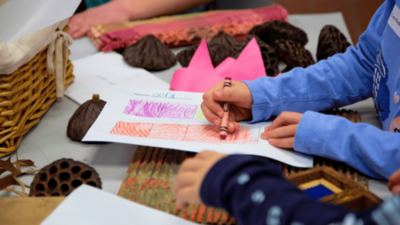Marriage and Family Therapists in Various Settings

Marriage and Family Therapy (MFT) is a unique and deeply impactful profession that centers on helping individuals, couples and families navigate the emotional, behavioral and mental health complexities of their relationships. These professionals serve in various settings—churches, schools, community centers, hospitals, private practice and more—each offering a distinct environment where they can bring healing and support to those in need.
Churches and Faith-Based Organizations
Churches and faith-based organizations often serve as sanctuaries for people seeking solace and guidance during difficult times. Marriage and family therapists (MFTs) working in these settings are uniquely positioned to blend therapeutic practices with the spiritual and religious beliefs that are so important to their clients. Many individuals turn to their faith communities for help when facing marital issues, family conflicts or personal struggles, and MFTs are there to provide compassionate care that honors their clients' values.
In a church setting, an MFT might collaborate closely with pastoral staff to offer services like premarital counseling, marriage enrichment programs and support groups for families dealing with challenges such as grief, addiction or divorce. By integrating faith and therapy, MFTs help individuals and families find comfort, hope and healing in ways that resonate deeply with their beliefs.
Schools and Educational Institutions
Schools are more than just places of learning—they are communities where students grow, develop and face a variety of challenges. MFTs in educational settings play a crucial role in supporting students as they navigate the ups and downs of growing up. Whether it's helping a child cope with the stress of academic pressures, assisting a teenager through a tough time at home or guiding a family through a significant life change, marriage and family therapists are there to provide a steady, supportive presence.
In schools, MFTs often serve as school counselors or work alongside educators to address the emotional and behavioral needs of students. They help young people develop essential life skills like emotional regulation, conflict resolution and healthy communication. MFTs also work with parents and teachers to create nurturing environments that support each child's holistic growth and development, ensuring that every student thrives.
Community Centers and Social Service Agencies
Community centers and social service agencies are vital lifelines for individuals and families facing significant challenges, such as poverty, domestic violence or homelessness. In these settings, MFTs provide essential services to those who might not have access to care elsewhere. Their work often involves helping clients build resilience and develop coping strategies to manage the difficulties they encounter in their daily lives.
MFTs in community settings might offer workshops on parenting, lead support groups for survivors of trauma or provide crisis intervention services. Their role extends beyond therapy; they connect clients with crucial resources, such as housing assistance, job training or healthcare, helping them build a foundation for a better future. The work of MFTs in these settings is often collaborative, requiring them to team up with social workers, case managers and other professionals to provide holistic care.
Hospitals and Healthcare Settings
Hospitals and healthcare facilities are places of both healing and hardship, where individuals and families often confront some of life’s most challenging moments. MFTs in these settings work alongside medical professionals to address the emotional and relational aspects of health and illness. They support patients and their families as they deal with chronic illnesses, traumatic injuries or terminal diagnoses, offering compassion and guidance during times of deep vulnerability.
Marriage and family therapists in healthcare settings also help patients struggling with mental health conditions like anxiety, depression or PTSD. They play a vital role in promoting a holistic approach to health, recognizing that emotional well-being is closely connected to physical health. Additionally, MFTs might support healthcare staff by developing programs that address the emotional toll of working in high-stress environments, ensuring that those who care for others also receive the care they need.
Private Practice
Private practice is a setting where MFTs can create a deeply personal and tailored therapeutic experience for their clients. Here, therapists have the flexibility to focus on specific areas of expertise, such as couples therapy, child and adolescent therapy or trauma recovery. The one-on-one nature of private practice allows MFTs to build long-term, trusting relationships with their clients, providing consistent support as they work through life’s challenges.
In private practice, MFTs have the freedom to design their therapeutic environment and approach, whether that involves traditional talk therapy, play therapy or other innovative methods. This setting allows therapists to truly connect with their clients, offering a space where individuals, couples and families can explore their feelings, work through their difficulties, and find a path toward healing and growth.
The Growing Importance of Marriage and Family Therapists
The role of marriage and family therapists is becoming increasingly important as more people recognize the impact that relationships and family dynamics have on mental and emotional well-being. Whether they are offering support in a church, guiding a student in a school, providing care in a community center or helping a family in a hospital or private practice, MFTs are dedicated to improving the lives of those they serve.
Their work is grounded in a deep understanding of human growth and development, enabling them to offer empathetic, effective and evidence-based support. As the demand for qualified marriage and family therapists continues to grow, the need for advanced education and training in this field becomes ever more critical.
Concordia University, Nebraska's Master of Arts in Marriage and Family Therapy Program
For those who feel called to help others through the journey of therapy, Concordia University, Nebraska offers a Master of Arts in Marriage and Family Therapy program. This program provides a comprehensive education that combines a strong theoretical foundation with practical, hands-on experience. Students will learn the essential principles of marriage and family therapy, human growth and development and counseling, equipping them with the knowledge and skills needed to make a meaningful impact on the lives of individuals, couples and families.
Concordia University, Nebraska's MFT program emphasizes both academic excellence and a biblical foundation, ensuring that graduates are prepared to meet the diverse needs of their clients through a Christ-focused perspective. Whether you envision yourself working in a church, school, community center, hospital or private practice, Concordia’s program can help equip you to develop the tools and confidence you need to succeed in this rewarding field.
Interested in the Marriage and Family Therapy program at Concordia?
Related Stories


